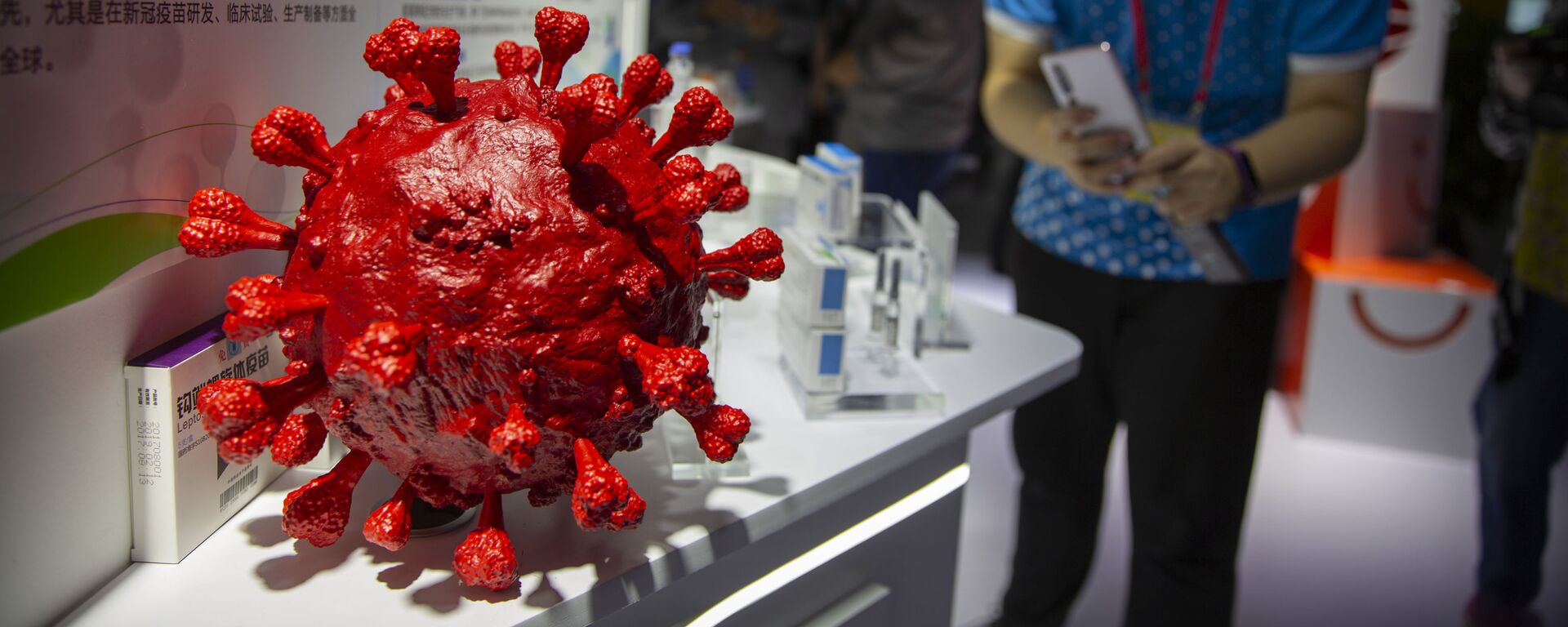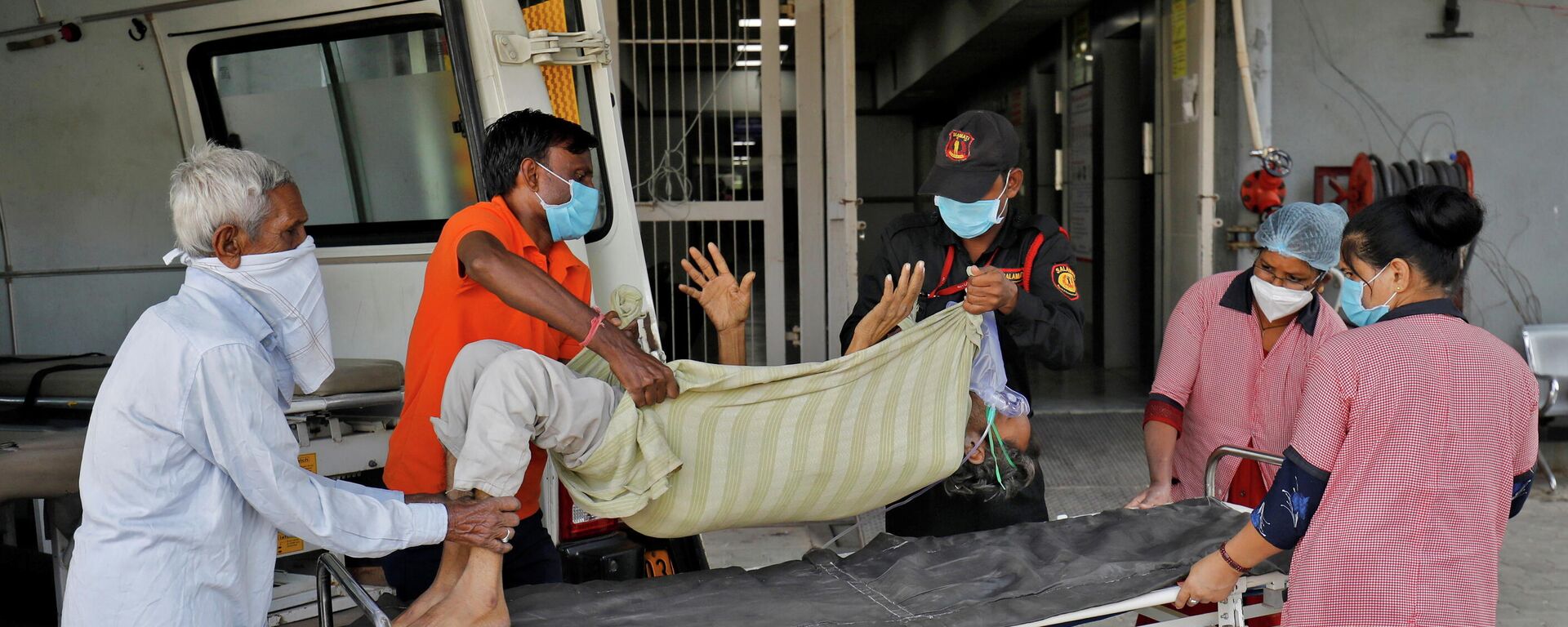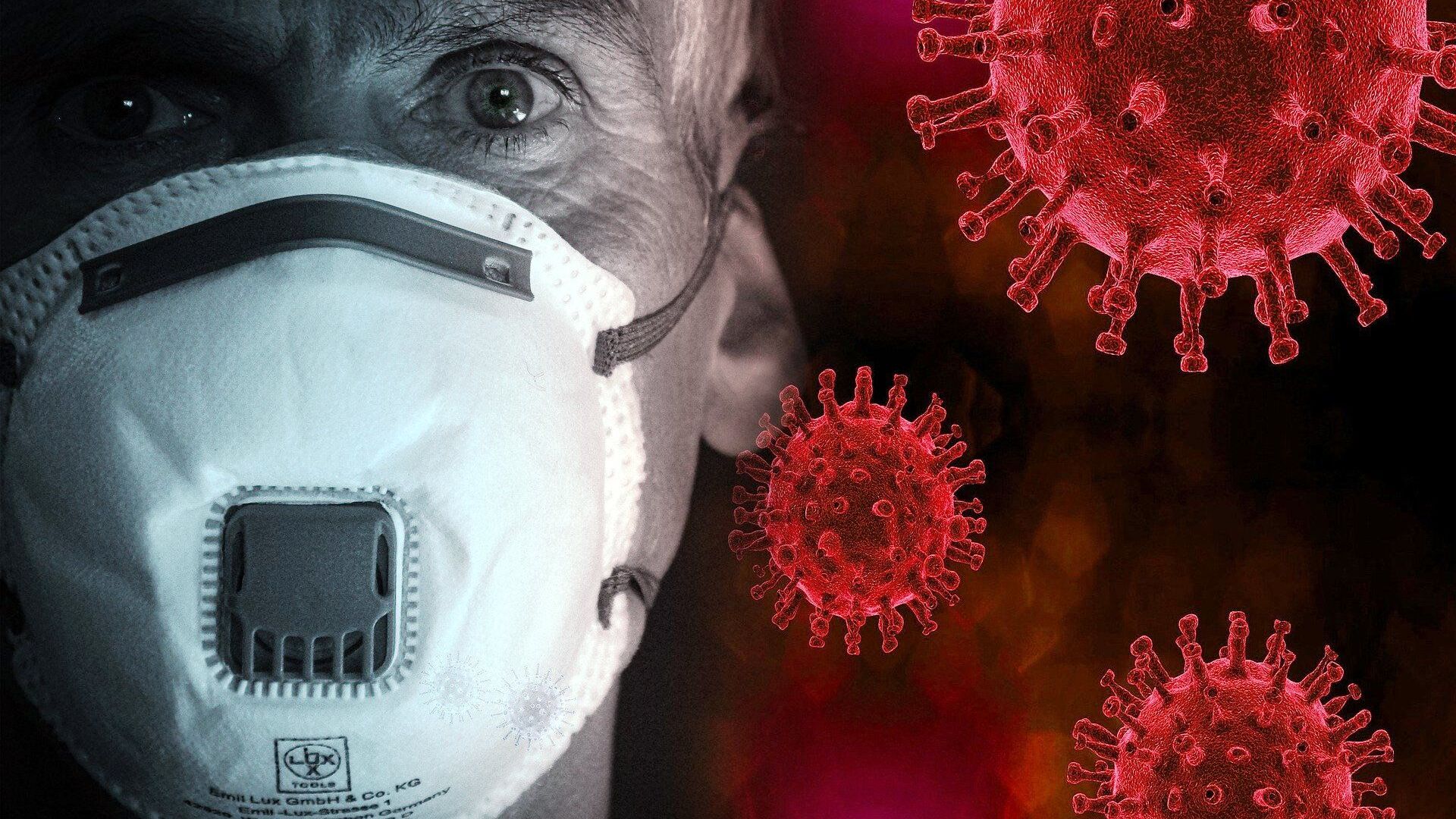https://sputnikglobe.com/20211130/people-with-blood-groups-a-b-and-rh-more-susceptible-to-covid-19-infection-study-finds-1091135712.html
People With Blood Groups A, B and Rh+ ‘More Susceptible’ to COVID-19 Infection, Study Finds
People With Blood Groups A, B and Rh+ ‘More Susceptible’ to COVID-19 Infection, Study Finds
Sputnik International
The research is a step towards understanding how the SARS-CoV-2 virus has spread in India, the second-worst hit country in the pandemic, largely on account of... 30.11.2021, Sputnik International
2021-11-30T11:55+0000
2021-11-30T11:55+0000
2022-07-19T10:40+0000
covid-19
delta variant of covid-19
https://cdn1.img.sputnikglobe.com/img/07e5/02/02/1081958561_0:100:1921:1180_1920x0_80_0_0_d653348c35fd8f1c328c481b793f1397.jpg
Research conducted by an Indian hospital has found that people with blood groups A, B and Rh+ are “more susceptible” to being infected by COVID-19 whereas those with O, AB and Rh- are less vulnerable to the SARS-Cov-2 virus.Although the research claims that people with certain blood groups are more prone to a COVID-19 infection, it adds that there is “no association” between blood groups and “susceptibility to severity of disease, as well as mortality”.The study was conducted by the Departments of Research and of Blood Transfusion Medicine at Sir Ganga Ram Hospital in New Delhi. A total of 2,586 COVID-19 positive patients were tested through real-time PCR between 8 April and 4 October last year during the research, the hospital said in a press release on Tuesday.The research was published in the 21 November edition of 'Frontiers in Cellular and Infection Microbiology', a Switzerland-based peer-reviewed journal which publishes research on “pathogenic microorganisms and their interaction with their hosts”.The doctors involved in the study have further claimed that “male patients of blood group B are more prone to COVID-19 than the female patients with blood group B”.“However, the ABO and/or Rh blood groups may not be responsible for this association, as these may indicate an unexplored underlying factor like co-morbidity. Therefore, larger, multicentre, and prospective studies are needed to ascertain the relationship between blood groups and SARS-CoV-2,” added Dr Ranjan.He said that all patients, who were part of the research effort, were Indians.“Previous studies have pointed out that B is one of the most prevalent blood groups in the northern part of India. Our research in a way confirms that,” he added.Dr Rashmi Rana, a consultant at the Sir Ganga Ram hospital’s department of research, explained the significance of the study findings.
https://sputnikglobe.com/20211013/china-to-study-blood-bank-samples-dating-back-to-2019-for-covid-19-origins-probe-reports-say-1089882481.html
https://sputnikglobe.com/20211129/covid-19-cases-among-fully-vaccinated-on-the-rise-in-india-as-omicron-variant-fears-escalate-1091107056.html
Sputnik International
feedback@sputniknews.com
+74956456601
MIA „Rosiya Segodnya“
2021
News
en_EN
Sputnik International
feedback@sputniknews.com
+74956456601
MIA „Rosiya Segodnya“
Sputnik International
feedback@sputniknews.com
+74956456601
MIA „Rosiya Segodnya“
covid-19, delta variant of covid-19
covid-19, delta variant of covid-19
People With Blood Groups A, B and Rh+ ‘More Susceptible’ to COVID-19 Infection, Study Finds
11:55 GMT 30.11.2021 (Updated: 10:40 GMT 19.07.2022) The research is a step towards understanding how the SARS-CoV-2 virus has spread in India, the second-worst hit country in the pandemic, largely on account of the deadly "second wave" this year. India's COVID situation has drastically improved since, with the government on Tuesday reporting the lowest daily caseload in 551 days.
Research conducted by an
Indian hospital has found that people with blood groups A, B and Rh+ are “more susceptible” to being infected by COVID-19 whereas those with O, AB and Rh- are less vulnerable to the SARS-Cov-2 virus.
Although the research claims that people with certain blood groups are more prone to a COVID-19 infection, it adds that there is “no association” between blood groups and “susceptibility to severity of disease, as well as mortality”.

13 October 2021, 07:30 GMT
The study was conducted by the Departments of Research and of Blood Transfusion Medicine at Sir Ganga Ram Hospital in New Delhi.
A total of 2,586 COVID-19 positive patients were tested through real-time PCR between 8 April and 4 October last year during the research, the hospital said in a press release on Tuesday.
The research was published in the 21 November edition of 'Frontiers in Cellular and Infection Microbiology', a Switzerland-based peer-reviewed journal which publishes research on “pathogenic microorganisms and their interaction with their hosts”.
The doctors involved in the study have further claimed that “male patients of
blood group B are more prone to COVID-19 than the female patients with blood group B”.
“Our study also found that Blood Group A and Rh+ types are associated with a decrease in recovery period, whereas Blood Group O & Rh- are associated with increase in recovery period,” Dr Vivek Ranjan, co-author and head of Sir Ganga Ram Hospital’s Department of Blood Transfusion, said.
“However, the ABO and/or Rh blood groups may not be responsible for this association, as these may indicate an unexplored underlying factor like co-morbidity. Therefore, larger, multicentre, and prospective studies are needed to ascertain the relationship between blood groups and SARS-CoV-2,” added Dr Ranjan.
He said that all patients, who were part of the research effort, were Indians.
“It hasn’t been conclusively established as yet that Indians are more prone to contracting a COVID infection than people of other nationalities,” said Dr Ranjan, when asked by Sputnik whether the study findings could also be applied to non-Indians.
“Previous studies have pointed out that B is one of the most prevalent blood groups in the northern part of India. Our research in a way confirms that,” he added.

29 November 2021, 14:44 GMT
Dr Rashmi Rana, a consultant at the Sir Ganga Ram hospital’s department of research, explained the significance of the study findings.
“Severe acute respiratory syndrome coronavirus 2 (SARS-CoV-2) is a new virus, and it is unclear whether blood groups have any impact on COVID-19 risk or progression."
"Therefore, we investigated the association of ABO and Rh blood group with COVID-19 susceptibility, prognosis, recovery time, and mortality in this study,” she remarked.





